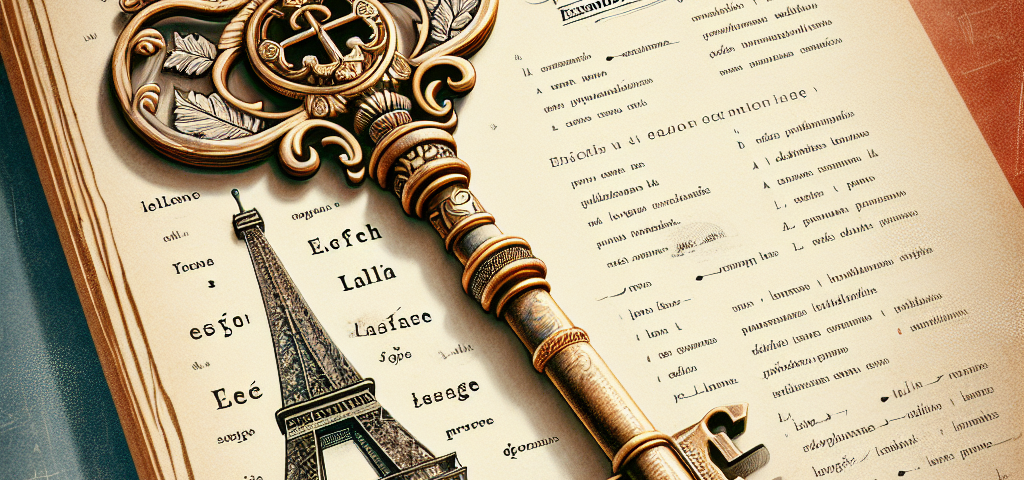
Master French in a Month: Your Ultimate Fast-Track Guide!
May 27, 2025
Unlock the Charm: Essential French Idioms Every GCSE Student Should Know
May 27, 2025
French is not just a language; it’s a gateway to a rich culture, history, and a myriad of opportunities. Whether you’re embarking on your journey as a novice, looking to enhance your language skills, or preparing for an adventure in a Francophone country, knowing essential vocabulary can significantly ease your path. This article serves as a guide to the most important French vocabulary every student should master for effective communication.
1. Basic Greetings and Polite Expressions
Establishing a friendly rapport starts with simple greetings. Here are essential phrases to begin conversations:
- Bonjour (Hello)
- Salut (Hi)
- Au revoir (Goodbye)
- S’il vous plaît (Please)
- Merci (Thank you)
- Excusez-moi (Excuse me)
Using polite expressions not only reflects good manners but also enhances the communication experience.
2. Everyday Vocabulary
To navigate daily life in a French-speaking environment, familiarize yourself with common vocabulary related to various situations:
Family and Friends
- Mère (Mother)
- Père (Father)
- Ami(e) (Friend)
- Frère (Brother)
- Soeur (Sister)
Food and Drink
- Eau (Water)
- Pain (Bread)
- Vin (Wine)
- Fruits (Fruits)
- Légumes (Vegetables)
Directions and Transportation
- Gauche (Left)
- Droite (Right)
- Tout droit (Straight ahead)
- Métro (Subway)
- Bus (Bus)
3. Classroom Language
In academic settings, effective communication is crucial. Here’s some vocabulary tailored for students:
- Professeur (Teacher)
- Étudiant(e) (Student)
- Devoir (Homework)
- Examen (Exam)
- Livres (Books)
Familiarizing yourself with classroom-related vocabulary can help facilitate discussions and administration tasks.
4. Expressing Opinions and Emotions
Being able to express your thoughts and feelings is essential in any language. Here are phrases that can assist with this:
- Je pense que… (I think that…)
- Je crois que… (I believe that…)
- Je suis content(e) (I am happy)
- Je suis triste (I am sad)
- C’est intéressant (It’s interesting)
Using these phrases can make conversations more engaging and personal.
5. Travel Vocabulary
If you’re planning to travel to a French-speaking country, these terms are invaluable:
- Aéroport (Airport)
- Hôtel (Hotel)
- Billet (Ticket)
- Carte (Map)
- Visite (Visit)
Knowing how to navigate travel scenarios can enhance your experiences and safety.
6. Cultural Context
Understanding context enriches the language-learning process. Engage with French media—films, music, and literature that expose you to various vocabularies and idiomatic expressions.
Recommended Resources
- Films: "Amélie", "Les Intouchables"
- Books: "Le Petit Prince" by Antoine de Saint-Exupéry
- Music: Artists like Édith Piaf, Charles Aznavour
Conclusion
Mastering essential French vocabulary is a crucial step for students looking to unlock the beauty and opportunities offered by the French language. By integrating these words and phrases into your daily practice, you can build confidence and fluency while preparing for immersive experiences in Francophone cultures. Remember that language learning is not just about memorization; it’s about connection. So, embrace every conversation, and enjoy the journey of unlocking the French language!

